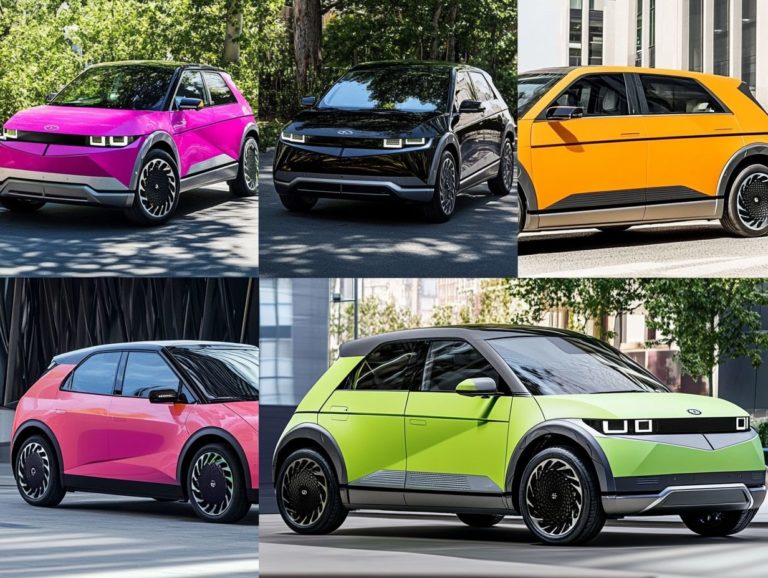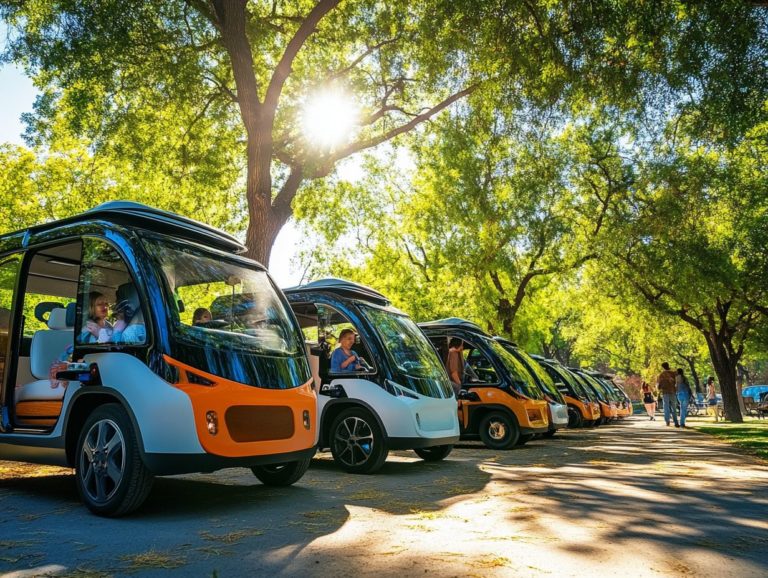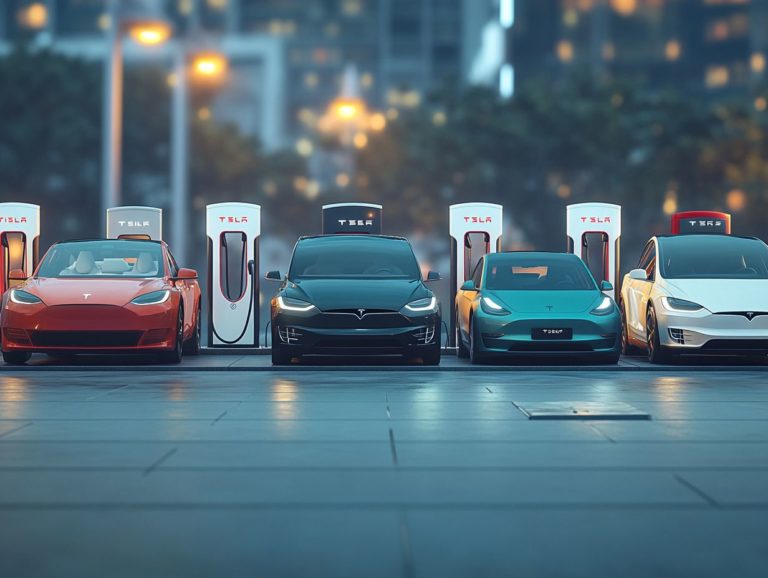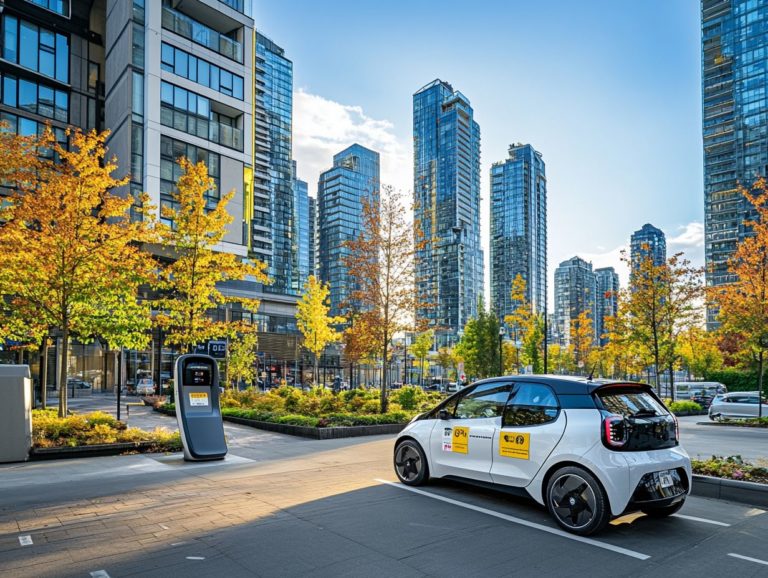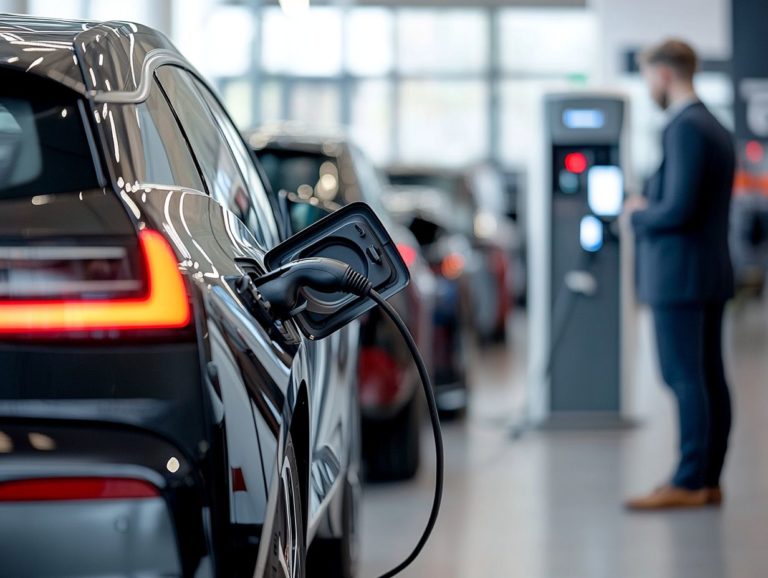How to Avoid Common EV Buying Pitfalls
Considering an electric vehicle (EV) can be an exhilarating journey. However, navigating the buying process may pose challenges.
From understanding your needs and budget to selecting the right model, common pitfalls can trip up even enthusiastic buyers.
This guide covers essential considerations, such as charging options, dealership tactics, and negotiation strategies. We aim to empower you with the knowledge you need.
We’ll also look into the future of EVs, highlighting exciting technological advancements that enhance your driving experience.
Whether you’re buying your first EV or upgrading, this guide is your go-to resource for a successful purchase.
Contents
- Key Takeaways:
- Common Pitfalls to Avoid
- Tips for a Successful EV Purchase
- Future of EVs and What to Expect
- Advancements in Technology and Infrastructure
- Frequently Asked Questions
- How to Avoid Common EV Buying Pitfalls?
- What are some common EV buying pitfalls to watch out for?
- How can I avoid making a hasty decision without researching the EV?
- What should I know about charging options before buying an EV?
- How can my driving habits impact my EV buying decision?
- What often overlooked cost should I factor in when buying an EV?
- How can I take advantage of tax incentives when purchasing an EV?
Key Takeaways:
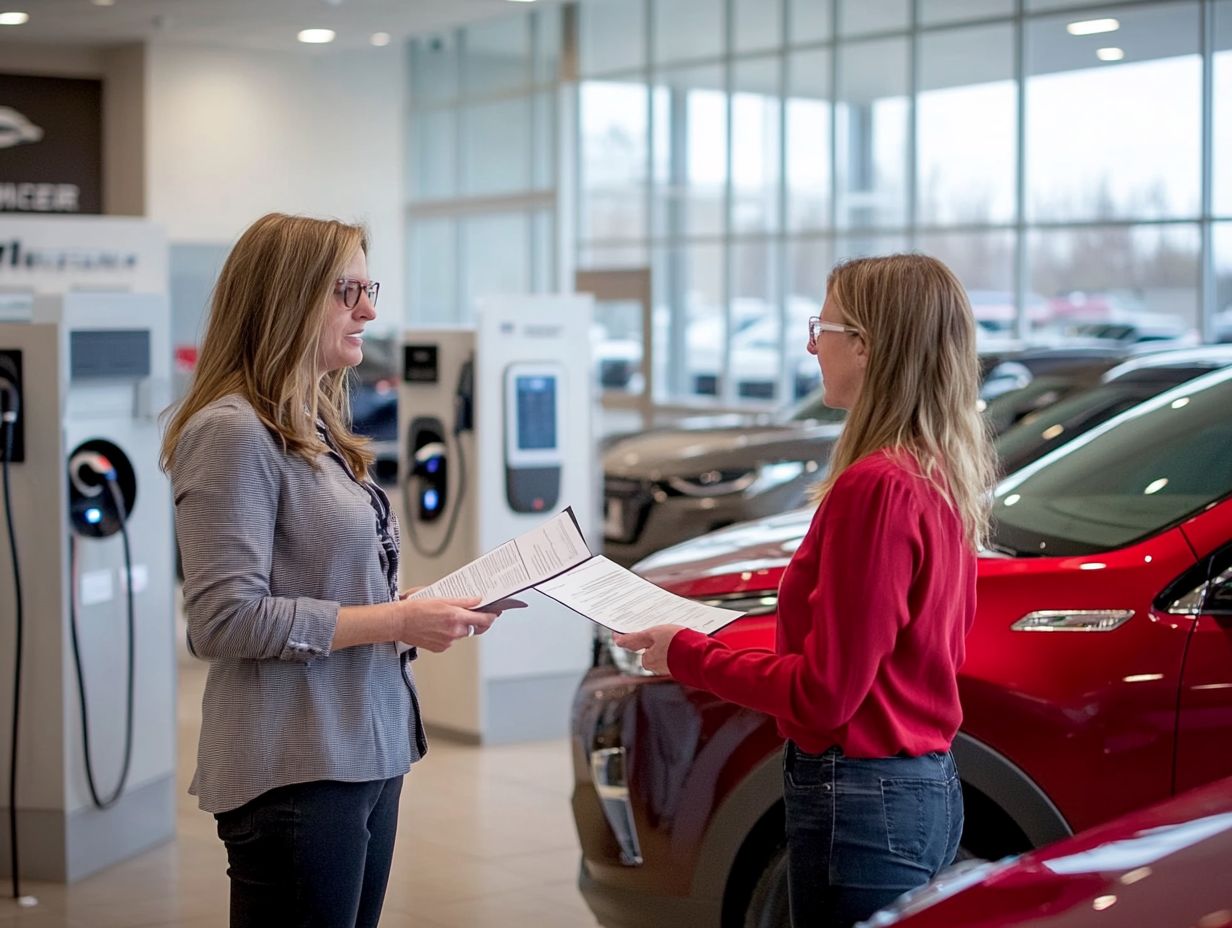
- Understand your needs and budget before researching EV models to avoid overspending.
- Prepare for the buying process by learning about negotiation and financing strategies.
- Stay informed about advancements in EV technology to make the best long-term decisions.
Why Choose an Electric Vehicle?
Choosing an electric vehicle (EV) is a transformative leap in automotive technology. You ll enjoy benefits like environmental sustainability, economic savings, and cutting-edge features.
With growing concern about climate change, this transition is not just sensible but essential. By going electric, you help reduce air pollution, especially in urban areas.
As the availability of charging spots improves, you’ll find it easier to recharge your vehicle. Exciting developments, such as better battery life and smart technology, make your driving experience enjoyable and eco-friendly.
Electric vehicles are drawing attention not just for sustainability but also for their potential to redefine personal transportation.
Common Pitfalls to Avoid
Transitioning to electric vehicle ownership comes with pitfalls that can impact your experience. Many of these issues stem from misconceptions and insufficient research, so understanding how to prepare for your first EV purchase is essential.
Range anxiety, which is the worry about battery life and charging options, often makes people hesitate. By understanding your vehicle’s specifications and the charging infrastructure, you can navigate this concern confidently.
Understanding Your Needs and Budget
Understanding your needs and budget is crucial for EV ownership. This directly influences your total cost and overall experience.
Assess factors like battery capacity, energy sources, and maintenance costs. This ensures you choose an EV that fits your lifestyle and finances comfortably.
Consider how you will charge your EV whether at home or at public stations. This is essential for a smooth ownership journey.
As you transition, you ll benefit from lower fuel costs and less frequent maintenance compared to traditional vehicles.
Also, remember that larger batteries typically offer greater range but can increase your initial investment. Balancing these factors will help you make informed choices, leading to a satisfying ownership experience.
Researching and Comparing Models
Thoroughly researching and comparing different electric vehicle (EV) models is essential for discovering the perfect match for your lifestyle and preferences. With a wide range of EV brands at your disposal, grasping their unique specifications, battery technologies, and charging speeds enables you to make an informed decision.
Each model presents distinct features tailored to various driving habits and needs. By looking into performance metrics such as range, acceleration, and efficiency, you can pinpoint which vehicle aligns best with your daily commuting or longer road trip plans.
Exploring user reviews and expert opinions further enhances your understanding of how each model performs in real-world scenarios. It s also crucial to assess the availability of charging infrastructure the places where you can charge your EV in your area, as this can significantly influence your overall ownership experience.
Effectively comparing these aspects not only helps you select the most suitable electric vehicle but also ensures your satisfaction in the journey ahead.
Considerations for Charging and Range

When selecting an electric vehicle (EV), your considerations surrounding charging and range are pivotal for a seamless ownership experience.
It’s essential to understand how your chosen model aligns with your commuting routine and lifestyle. For instance, while you might find charging at home to be perfectly convenient, you may also rely heavily on public charging networks, making access to fast-charging stations crucial.
Take a moment to examine the charging speeds offered by various stations; longer wait times can easily disrupt your daily schedule. By assessing the proximity of charging options to your frequent travel routes, you can significantly enhance your experience, ensuring that range concerns are minimized and your daily driving remains hassle-free.
Dealing with Dealerships and Sales Tactics
Navigating the dealership landscape while purchasing an electric vehicle (EV) can be quite the endeavor, filled with various sales tactics and potential pitfalls. It’s crucial for you to grasp the nuances of EV insurance, vehicle registration, and maintenance costs, and referring to the ultimate checklist for EV buyers can help you sidestep common myths that might cloud your judgment.
By employing effective cost-saving strategies, you ll be enabled to negotiate favorable terms and secure the vehicle that truly aligns with your needs. Be aware of tactics like upselling, which can lead to unnecessary expenses.
Familiarizing yourself with common dealership sales tactics, such as creating an artificial sense of urgency, is essential. Recognizing these strategies will help you stay calm and focused throughout the process. Additionally, preparing for the EV ownership transition by understanding the real costs, including charging infrastructure and potential tax incentives, will give you a clearer view of the financial commitment ahead.
By equipping yourself with thorough research and practical tools, you can confidently counter high-pressure sales techniques, ensuring that you not only find the right EV but also make a sound financial investment.
Tips for a Successful EV Purchase
Successfully purchasing an electric vehicle (EV) requires strategic planning and meticulous preparation, allowing you to navigate the process with both confidence and insight. It’s also important to understand the top misconceptions about buying an EV to make informed decisions.
From negotiating the most favorable deal to employing effective financing strategies, every step is essential in enhancing your EV ownership experience. Empower yourself with knowledge!
Grasping the nuances of post-purchase maintenance, particularly battery degradation management, is crucial for maximizing your vehicle’s performance and ensuring its longevity. Act soon to start your journey toward EV ownership!
Preparing for the Buying Process
Preparing for the buying process is an essential step for you as a prospective electric vehicle (EV) owner. It ensures you re equipped with the necessary knowledge and resources to make informed decisions.
Key elements to consider include understanding your EV insurance options, anticipating vehicle registration fees, and assessing your charging habits to align with battery performance and energy consumption needs. For more detailed guidance, check out what to look for when buying an EV. This preparation is critical for a successful purchasing experience.
Additionally, researching potential federal or state incentives can significantly influence the overall cost, making your transition to EV ownership more financially feasible. Evaluating the charging infrastructure in your area and identifying convenient locations whether at home or public stations is another critical factor to consider.
Understanding the various types of EVs available on the market will help you choose a model that best suits your lifestyle and commuting needs. The goal of this thorough preparation is to streamline your buying process and maximize your satisfaction with your new electric vehicle.
Negotiating and Financing Strategies
Negotiating and financing strategies are essential to enhancing the affordability and satisfaction of your electric vehicle (EV) ownership experience. By understanding your financing options and adopting effective cost-saving techniques, you can secure the best deal possible. Familiarity with vehicle specifications and anticipated maintenance costs is crucial for making informed decisions throughout the negotiation process.
As a potential buyer, you should explore various incentives, such as government rebates and tax credits, which can significantly lower the overall price. Comparing multiple dealerships and financing offers allows you to uncover competitive rates that suit your financial situation.
It’s vital to know the total cost of ownership, which encompasses insurance, charging expenses, and resale value, to ensure you make a well-informed purchase. By leveraging your knowledge of the EV market and specific models, you can empower yourself during negotiations, ultimately leading to a deal that perfectly aligns with your budget and preferences.
Post-Purchase Maintenance and Care
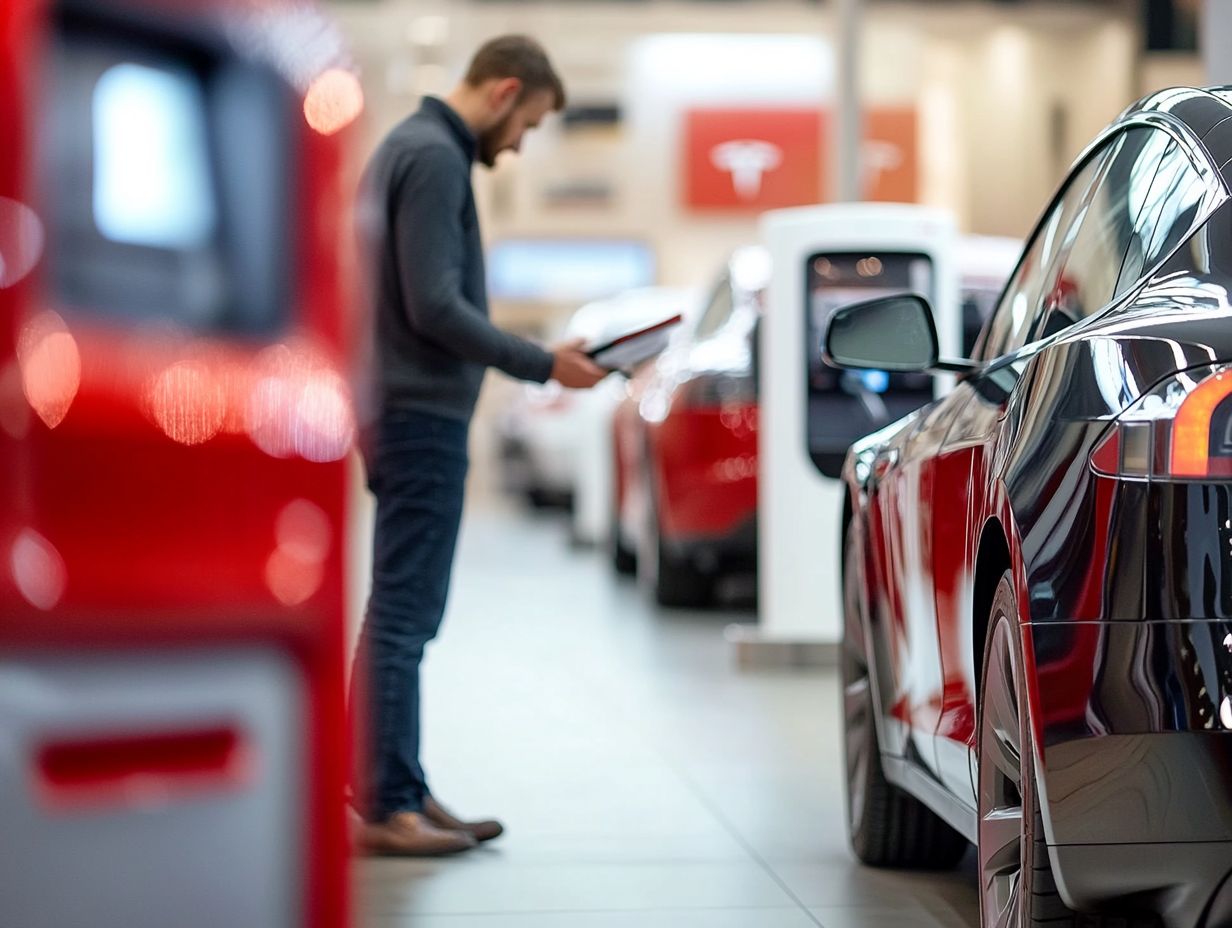
Post-purchase maintenance and care are essential for ensuring your electric vehicle (EV) remains in peak condition and performs at its best.
Taking an informed approach can lead to substantial savings and a more enjoyable driving experience. Regularly checking the battery’s state of charge and health is crucial, as these elements directly influence your vehicle’s efficiency. Establishing a consistent maintenance routine that includes inspections of tires, brakes, and fluid levels will further enhance overall performance.
Additionally, understanding the intricacies of charging practices like steering clear of frequent fast charging and opting for level two chargers can significantly extend your battery’s lifespan. By adhering to these guidelines, you’ll unlock your EV’s full potential while keeping unexpected costs at bay.
Future of EVs and What to Expect
The future of electric vehicles (EVs) holds the promise of extraordinary advancements in technology, charging networks, and battery innovations that will truly transform the automotive landscape.
As the EV market progresses, you can anticipate significant enhancements in energy sources, charging infrastructure, and overall vehicle performance. Staying well-informed about these developments is crucial for both prospective and current EV owners, ensuring you navigate this evolving journey with confidence and insight.
Advancements in Technology and Infrastructure
Advancements in technology and infrastructure are swiftly reshaping the electric vehicle (EV) landscape, elevating battery performance and enriching your user experience. These exciting developments wipe away your worries about running out of battery! Innovations in charging infrastructure, including enhanced charging speeds and smart features, are making EV ownership more accessible and convenient than ever. They lay the groundwork for a more sustainable automotive future.
Ultra-fast charging stations are dramatically slashing downtime. You can recharge your vehicle in mere minutes instead of hours. As you benefit from these enhancements, advancements in battery technologies, like solid-state batteries a new type of battery that lasts longer and charges faster promise longer lifespans and increased energy density, significantly extending your EV’s range.
Smart features powered by artificial intelligence enhance your experience. They enable predictive maintenance and real-time navigation to charging stations, improving overall efficiency. As cities adapt to accommodate a growing number of charging points, these innovations are crucial in creating a holistic ecosystem that supports widespread EV adoption.
Frequently Asked Questions
How to Avoid Common EV Buying Pitfalls?
When it comes to purchasing an electric vehicle (EV), buyers may encounter a few common pitfalls. To help you navigate the process, here are some frequently asked questions and answers, along with top mistakes to avoid when buying an EV to make an informed decision.
What are some common EV buying pitfalls to watch out for?
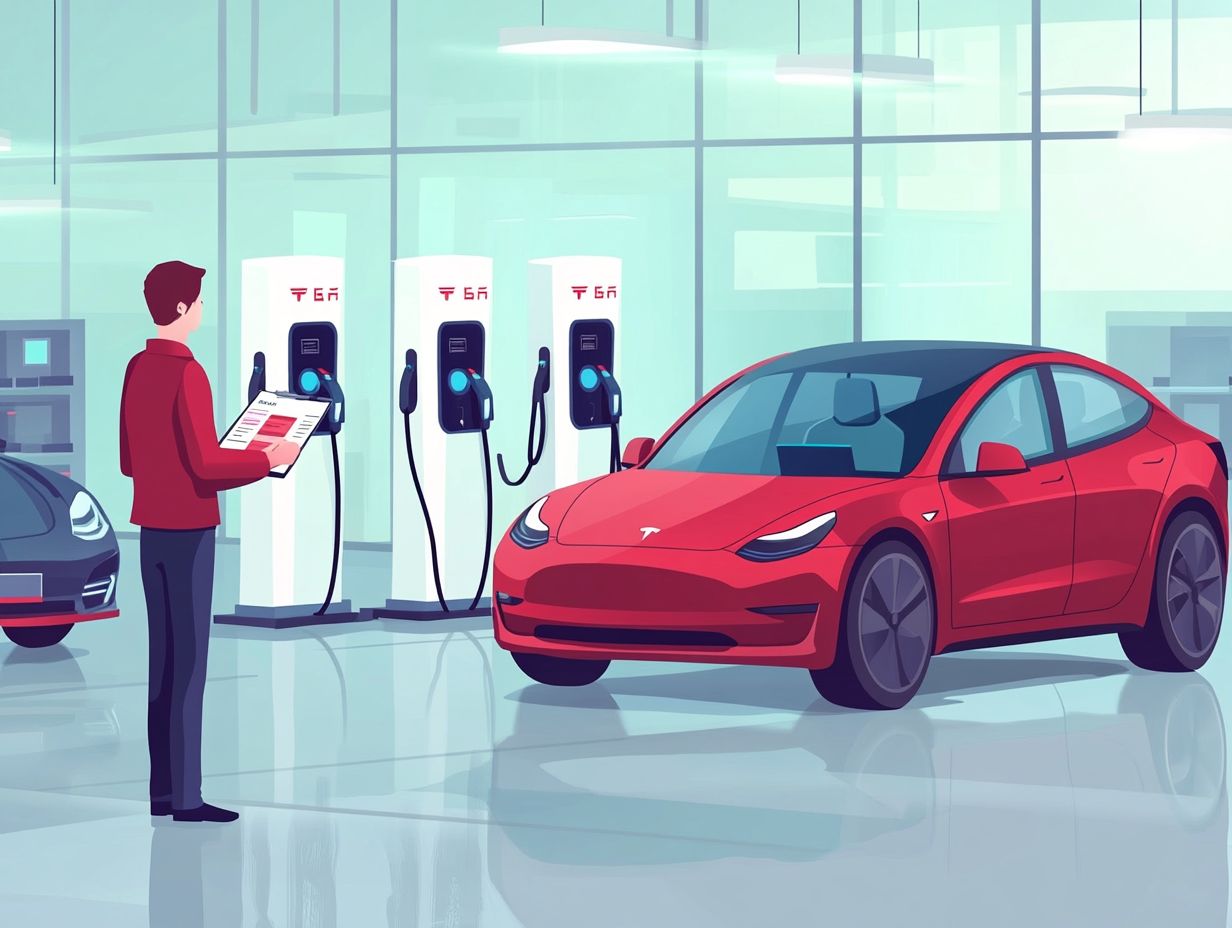
- Not researching the vehicle thoroughly
- Not understanding the charging options
- Not considering your driving habits
- Not factoring in maintenance costs
- Not comparing prices from different dealerships
- Not taking advantage of tax incentives
How can I avoid making a hasty decision without researching the EV?
Before making any purchase, it’s important to research the vehicle thoroughly. This includes understanding its features, capabilities, and limitations. To help you make an informed decision, check out how to choose between EV models, and take the time to read reviews, watch videos, and test drive the EV to ensure it meets your needs and expectations.
What should I know about charging options before buying an EV?
One of the main concerns when purchasing an EV is charging options. Make sure to understand the different charging levels (Level 1, Level 2, and DC fast charging) and how they may affect your daily routine and travel plans. Also, consider the availability of charging stations in your area and on your regular routes.
How can my driving habits impact my EV buying decision?
Your driving habits play a significant role in determining which EV is right for you. Consider the range of the vehicle and whether it can comfortably accommodate your daily commute and any long-distance trips. Also, think about your charging needs based on your daily mileage.
What often overlooked cost should I factor in when buying an EV?
Many people focus on the purchase price of the EV but forget to consider the long-term costs. Maintenance costs for EVs tend to be lower than traditional vehicles, but they still need occasional servicing. Factor in these costs when making your decision, along with insurance rates and potential battery replacement expenses.
How can I take advantage of tax incentives when purchasing an EV?
Many governments offer tax incentives or rebates for purchasing an EV. Research and understand the available incentives in your area to potentially save money on your purchase. You may also be eligible for additional benefits such as carpool lane access or free charging at public stations.
Ready to make an informed decision? Visit your local dealership or check for EV incentives in your area today!

